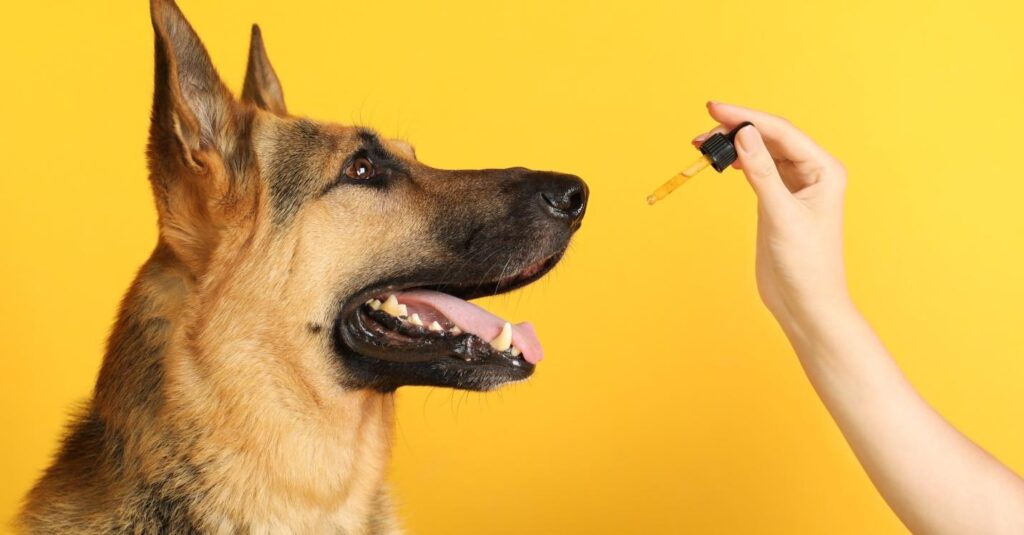Navigating the labyrinth of pet behavior can sometimes be a complex endeavor. There is often an interest in finding solutions that go beyond traditional training methods, and one option gaining attention is CBD or cannabidiol. The purpose of this article is to provide an in-depth guide to understanding how CBD oil for pets can be used to modify pet behavior.
What’s CBD Anyway?
Pets have behavioral issues such as anxiety and hyperactivity that can be challenging for their owners to manage. CBD is an all-natural compound easily found in hemp and marijuana plants. It offers a broad range of therapeutic benefits that can help your pets. The best part is that, unlike THC, CBD does not cause any intoxication, making it a safe and reliable alternative for pet owners who want to provide the best care for their furry friends. With CBD, pet owners can have peace of mind knowing that their pets are receiving a natural and non-psychoactive treatment for their behavioral issues. CBD could be the solution if you’re looking for a way to enhance your furry friend’s wellness and assist them in overcoming any obstacles they may be encountering.
How CBD Affects Pet Behavior
Understanding the endocannabinoid system is crucial to understanding how CBD alters or modifies pet behavior. All mammals’ systems regulate various physiological processes, including mood and stress response. When administered to pets, CBD interacts with the endocannabinoid system, helping to restore balance to these processes. It is analogous to tuning a musical instrument to achieve balance and harmony.
CBD for Anxiety and Stress:
Animals experience anxiety and stress in much the same way humans do. These feelings often manifest as specific behaviors, such as excessive barking, scratching, or aggressive actions. CBD affects serotonin levels to reduce stress-related behaviors. This is similar to how certain anti-anxiety medications work in humans. Some pet owners consider using CBD for their pets, like ‘trip insurance’ for journeys, as it offers an additional layer of reassurance that the travel experience will be less stressful for their animal companions.
CBD for Aggression:
Aggressive behavior in pets can result from various underlying issues, including anxiety, past trauma, or certain medical conditions. Administering CBD may help modify aggressive behavior, primarily through its effect on serotonin levels. As a neurotransmitter closely linked to mood stabilization, increased serotonin levels can help make pets more friendly and less prone to aggression.
CBD for Hyperactivity:
Hyperactivity in pets is another behavioral issue that causes concern among many pet owners. Hyperactive pets are often unable to settle, constantly seeking attention, and may even engage in destructive behavior. CBD has demonstrated potential as a natural sedative when administered in higher doses. By interacting with neurotransmitters that regulate mood and behavior, CBD can help calm hyperactive pets, making them more manageable and less prone to disruptive behavior.
Dosage and Administration:
Determining the correct dosage of CBD is a critical aspect of its efficacy in behavior modification. Factors like the pet’s size, breed, and specific behavioral issues must be considered when deciding the dosage. The general guideline is to begin with a small amount and gradually upsurge it while monitoring its effects. Consulting a veterinarian is crucial to get specific dosage recommendations and to ensure that CBD does not interact adversely with any other medications the pet may be taking.
The Legal Maze
Before embarking on a CBD regimen for pet behavior modification, it is essential to check the legal status of CBD in the jurisdiction in which one resides. While most places in the United States permit hemp-derived CBD, laws can differ significantly regarding cannabis-derived CBD. Therefore, conducting proper research is essential to ensure one complies with local laws and regulations.
In Conclusion:
Understanding the potential of CBD oil for pets’ behavior modification requires a multifaceted approach. By exploring how CBD interacts with the endocannabinoid system, it becomes clear why it may be an effective alternative for treating various behavioral issues, from anxiety and aggression to hyperactivity. However, success with CBD treatment is not guaranteed and is influenced by multiple factors, including dosage, specific behavioral issues, and even the legal status of CBD in certain jurisdictions. As more research emerges, CBD may become a staple in holistic pet behavior treatment protocols. But for now, it is an exciting and promising option.






